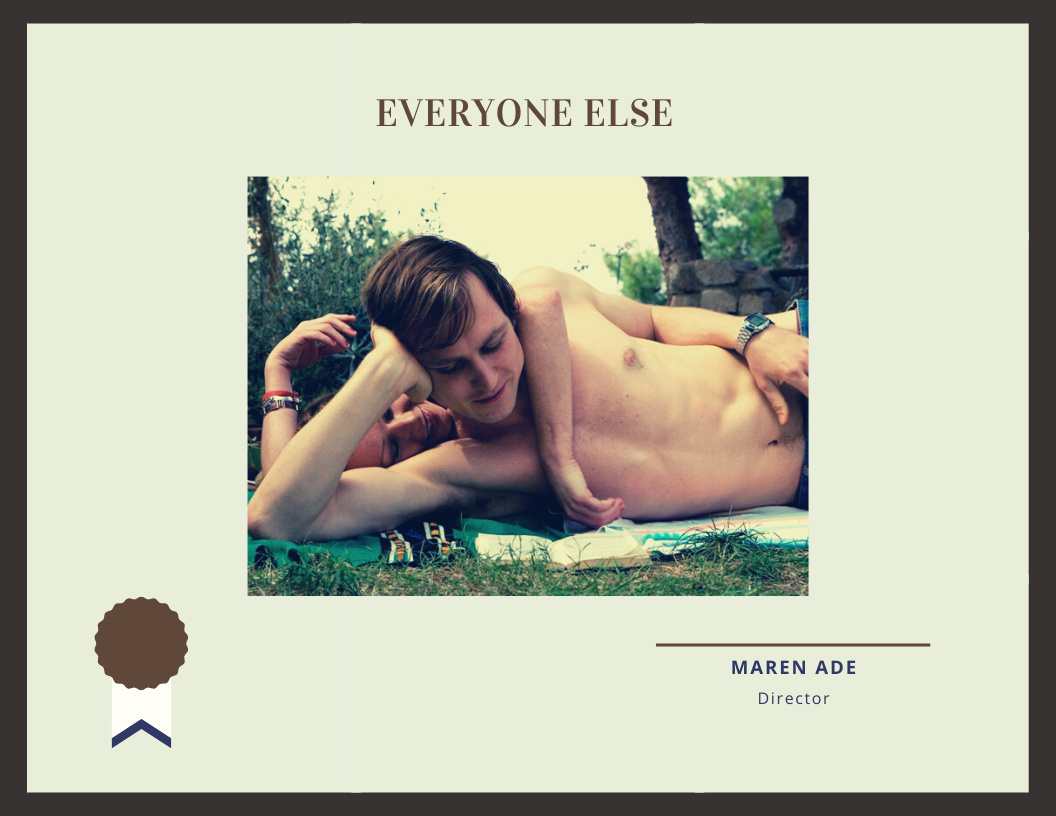#MondayMovies: Max Tullio
Max Tullio
When a lover becomes a stranger… a common occurrence in any human life, I know, but one that intrigues me deeply. There’s a particular type of heartbreak in sharing intimate and deeply personal moments with someone, moments that invariably feel eternal, only to realize in hindsight how fleeting they were.
Not to wax poetic but, hey, that’s what a good movie does right? Makes you get all deep and shit.
That’s what Max Tullio’s excellent short, Más Bowls, does. It’s got Napoleon Dynamite energy but secretly breaks your heart and you don’t really know why.
A current first year in Columbia’s MFA directing program, his background and journey into filmmaking explain the film’s strong style and point of view:
“When I was young I thought I wanted to be a painter and liked tagging shitty stencils on elementary school walls, but I eventually found my way to film and realized it was the medium that most excited me. I went to Sarah Lawrence thinking I was going to dive into it but found myself increasingly drawn to anthropology and cultural studies.
In turn I think a lot of my thematic concerns, and my approach to filmmaking, is as informed by things like phenomenology and affect theory as it is by the cinema that has inspired me.”
The silent and specific flavor of agony this film has its roots in Tullio’s own high school years
“This project started when I read Z. H. Gill’s (screenwriter) draft around age 16 or 17. Back then I had frosted tips and pretty regrettable haircuts all the time and was into Todd Solondz and the Cure and shit. The starkness and acidity with which the script depicted the most challenging of coming of age stories struck me, and I knew that I wanted to make it at some point.”
Five years later, he did.
What results is a surprisingly hard-hitting film told with a surreal sense of humor. Tullio set out to “explore the human toll of the small tragedies that are hidden beneath the Windex-ed surfaces of suburbia.” Though it may take you back to your high school days and the real or imagined trials you face, there’s nothing sensational or romantic about Más Bowls. Just a darkly funny and deeply felt coming-of-age movie.
Where to Watch
See what movies inspired Tullio and Más Bowls below!
Loulou
“I really could’ve picked any of the early Pialat films for this list. A Nos Amour, Graduate First, and LouLou are all incredible studies of character and relationships, but I think what drew me to LouLou in particular was Isabelle Hupert as Nelly.
“She leaves this snobbish intellectual for this kind of brute, obtuse man and even though she has moments of happiness with both (and sexual gratification — at least with LouLou), there’s a disaffection and malaise behind her eyes that I found so powerful.
“Pialat lets his camera linger tightly on those moments which gives what is not said just as much, if not more power than what is. I wanted Lex’s character to have the same attention and hopefully connect in a similar way.
Where to watch
The Virgin Suicides
“I’m sure my friends would be rolling their eyes at this pick, considering I haven’t really stopped talking about the film since I saw it as a teenager. This film casts a long spell. It’s such a vivid world that the characters live in, but at the same time they feel like they’re floating just above the surface of it.
Sofia Coppola creates a feeling of dread just below the shimmering sunlight and ‘70s pastels, and I wanted to imbue that kind of aesthetic tension in Más Bowls. Being the film is also an adaption, reading the Eugenides novel and seeing how Coppola shaped the pages was also helpful. The lilt and dryness of the boys’ voiceover does this amazing thing where they feel enamored with, and yet still othered from, the Lisbon girls. I thought that Davey might speak the same way about Lex. Girls are such a mystery to high school boys, how could it not be that way?”
WHERE TO WATCH
Everyone Else
“Maren Ade, particularly in her first two films, makes me so unsettled and so uneasy at the smallest behaviors of her characters. It’s so human but so squirm-inducing. There’s a rawness and immediacy that creates this sort of static electricity running through the films. It feels kind of like how you anticipate a shock after walking across the carpet in socks, but you never know what’s going to be the thing to jolt you? The boyfriend (Chris) in Everyone Else is so consumed with himself that he’s unable to see how he’s slowly sticking needle after needle into Gitti’s side with each little choice he makes. I wanted to trace that in Davey, particularly in moments like when he plays ‘Wish I Was Skinny’ for his pregnant girlfriend.”
Where to Watch
Pure Slaughter Value
“This is a collection of short stories, so maybe I’m cheating, but it was a heavy influence on the film. I also think that student filmmakers should just be reading more. The characters that Bingham drew were helpful for me to look at because of how complex and nuanced they are. Davey is a fucked up kid, but he is not inherently bad—much like the men in most of these stories—and I never wanted to paint him that way. Bingham’s prose was also strangely influential on finding a style for the film. It’s sharp and stylized but never feels inappropriate or intrusive.”






